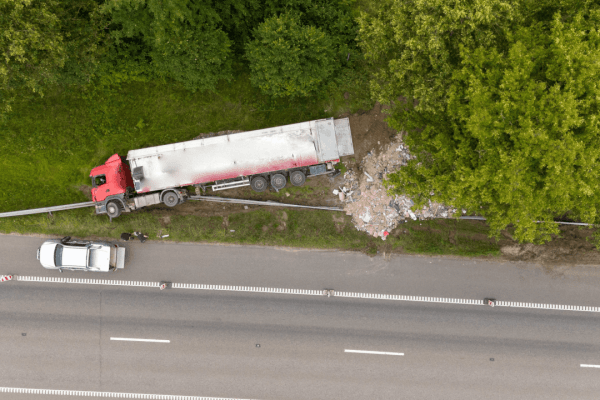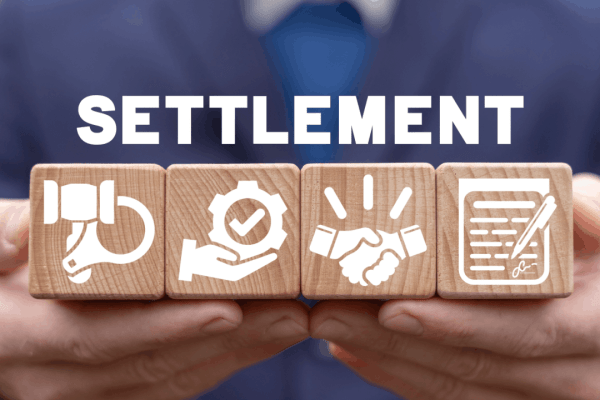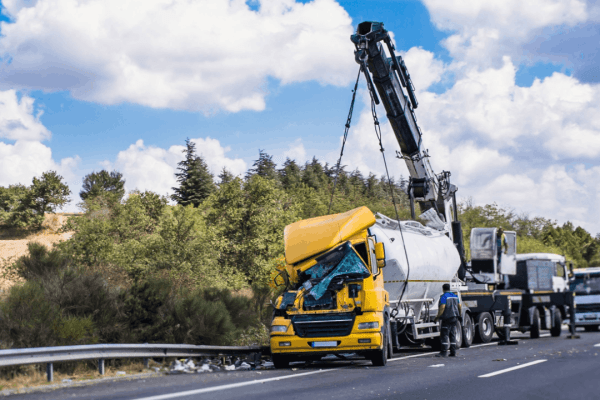
Trucking Accident Settlements: What You Need to Know to Maximize Compensation
Understanding the Process of Trucking Accident Settlements
Trucking accident settlements are legal agreements that resolve claims after a crash involving a commercial truck. These settlements are designed to compensate victims for medical expenses, lost income, pain and suffering, and other damages without going to court. Because commercial truck accidents often lead to serious injuries and involve multiple parties, the settlement process can be more complex than regular car accident claims.
What Are Trucking Accident Settlements?
A trucking accident settlement is a financial agreement reached between the injured party and the liable party (often the trucking company or its insurer) to resolve a legal claim. Instead of proceeding to trial, both sides agree on a compensation amount that covers the victim’s losses.
Settlement vs. Trial: Which Is More Common?
Most trucking accident cases settle out of court. Trials are lengthy, expensive, and uncertain. Settlements offer a faster and more predictable outcome for both parties.
However, settlements are typically evaluated based on the nature and extent of injuries and losses.
Typical Timeline for a Settlement
A typical trucking accident settlement can take anywhere from a few months to over a year depending on:
- The severity of the injuries
- The clarity of liability
- The complexity of the case
- The willingness of the insurance company to negotiate
While it’s tempting to settle quickly, accepting the first offer may result in a lower payout than you’re entitled to.
What Factors Affect Trucking Accident Settlements?
Several variables play a role in determining the value of trucking accident settlements. While every case is different, understanding these factors helps set expectations and prepare you for negotiations.
Severity of Injuries and Medical Needs
The more serious the injuries, the higher the settlement is likely to be. Settlements typically increase with:
- Hospital stays or surgeries
- Ongoing physical therapy or rehabilitation
- Permanent disabilities or disfigurement
- Long-term or lifelong medical care needs
Medical documentation, treatment plans, and doctor evaluations are critical when calculating damages.
Liability and Shared Fault
Liability determines who is legally responsible for the crash. In trucking accidents, fault may fall on:
- The truck driver
- The trucking company
- Third-party contractors or cargo handlers
- Vehicle manufacturers (in cases involving defects)
If you’re partially at fault, many states use comparative negligence laws that reduce your settlement based on your share of responsibility.
Insurance Policy Limits
Commercial trucking companies often carry higher insurance coverage than private drivers. However, this doesn’t guarantee a high settlement. Insurance companies will still try to minimize payouts. The available policy limit can create a ceiling on what can be recovered unless additional parties are involved.
Economic and Non-Economic Damages
Both tangible and intangible losses are considered in trucking accident settlements. These include:
- Economic: medical bills, lost wages, property damage
- Non-economic: pain and suffering, emotional trauma, reduced quality of life
Courts and insurers may use multiplier formulas to calculate non-economic damages based on your total medical costs.
Strength of Evidence
Strong evidence increases your bargaining power. This includes:
- Crash scene photos
- Police and incident reports
- Truck black box (ELD) data
- Witness statements
- Maintenance and driver logs
A complete evidence file helps clearly prove liability and support your damage claims.
Types of Compensation You Can Recover
A key goal of trucking accident settlements is to make the victim “whole” again by compensating for all losses. Here’s a breakdown of what you may be entitled to:
Medical Expenses
- Emergency care and ambulance fees
- Surgeries, hospital stays, and follow-up appointments
- Physical therapy and chiropractic care
- Prescription medications and medical devices
- Future anticipated medical costs
Lost Wages and Earning Capacity
If you missed work due to the accident or are unable to return to your previous job:
- Past lost wages from missed days
- Future income loss if your earning ability is affected
- Compensation for reduced work hours or career changes
Pain and Suffering
These non-economic damages may not come with receipts but are still very real. They account for:
- Physical pain from injuries
- Emotional distress or trauma
- Loss of enjoyment of life or hobbies
- Depression, anxiety, or PTSD symptoms
Property Damage
If your vehicle or personal belongings were damaged or destroyed:
- Repair or replacement of your car
- Towing and rental car fees
- Replacement of personal items (e.g., electronics, clothing)
Punitive Damages (in rare cases)
Punitive damages may be awarded if the trucking company or driver acted with gross negligence, such as driving under the influence or violating safety regulations intentionally.
How Insurance Companies Calculate Settlement Offers
Insurance companies play a major role in determining the value of trucking accident settlements, but their goals don’t always align with yours. While victims seek fair compensation, insurers aim to minimize payouts.
Valuation Formulas and Claim Scoring
Insurers typically use formulas that consider:
- Total medical costs
- Property damage estimates
- Lost income documentation
- Severity of injuries
- Duration of treatment
Non-economic damages like pain and suffering are evaluated using insurer-specific assessment methods that vary by case.
How Adjusters Evaluate Claims
Insurance adjusters review:
- Medical records for consistency
- Gaps in treatment or prior injuries
- Fault determinations from police reports
- Vehicle photos and repair invoices
- Witness statements or black box data
The stronger your documentation, the harder it is for the insurer to argue against your claim.
Watch for Lowball Tactics
Early settlement offers are often lower than what the case is worth. Common tactics include:
- Disputing medical necessity or pre-existing conditions
- Claiming you were partially at fault
- Offering quick payouts to avoid long-term costs
Never accept a settlement offer without having it reviewed by a legal professional.
Legal Strategies to Maximize Your Settlement
Hiring an experienced attorney is one of the most effective ways to improve your outcome in trucking accident settlements. Here’s how legal professionals add value:
Gathering and Preserving Evidence
Attorneys know how to collect key evidence like:
- Truck driver logs and training history
- Vehicle maintenance records
- Black box (ELD) data
- Witness depositions
- Surveillance footage or nearby dashcams
This information strengthens your claim and supports your demand for higher compensation.
Working With Experts
Many trucking accident cases involve:
- Medical experts who testify about your prognosis
- Economists are to calculate the future lost income
- Accident reconstruction specialists to clarify what happened
Legal teams often have a network of experts who can help justify larger settlements.
Negotiating With Leverage
Attorneys understand insurer tactics and can respond accordingly. They may:
- Push back against low offers with detailed evidence
- Present counter-demands supported by case law
- File a lawsuit to increase pressure and negotiation power
Legal representation can influence how insurers evaluate and respond to claims.
Realistic Expectations for Trucking Accident Settlements
While every case is different, it’s important to understand what affects your timeline and compensation. Managing expectations will help you stay informed and avoid pressure to settle too early.
Average Settlement Ranges
Settlement values vary widely based on:
- Type and severity of injury
- Whether liability is clear or disputed
- Amount of available insurance coverage
- Location of the crash (some jurisdictions award higher damages)
Even with serious injuries, there is no “guaranteed” payout. However, documented claims with legal support are evaluated based on the available evidence and applicable law.
Delays and Disputes
Factors that may slow down the settlement process include:
- Disagreement about fault
- Ongoing medical treatment
- Insurance carrier delays or non-responsiveness
- Involvement of multiple defendants
Working with an attorney helps you stay on track and avoid unnecessary delays.
When to Settle and When to Go to Trial
Settling is often preferred because it’s faster and less expensive. However, if the insurer won’t make a fair offer, your attorney may recommend taking the case to trial. In these cases:
- Juries can award higher damages
- You may gain leverage even by filing a lawsuit
- Trials take longer and involve additional risks and uncertainties.
Common Mistakes That Can Hurt Trucking Accident Settlements
Even with a strong case, victims can unintentionally reduce their compensation by making simple mistakes. Knowing what to avoid is just as important as knowing what to do. Here are the most common errors that can jeopardize trucking accident settlements:
Delaying Medical Treatment
Waiting too long to see a doctor after the accident can create doubt about the seriousness of your injuries. Insurance companies may claim your condition isn’t related to the crash or wasn’t severe. Always seek medical attention immediately and follow through with all recommended care.
Talking to Insurance Adjusters Without Representation
Insurance adjusters are trained to protect the company’s bottom line—not your best interests. Giving a recorded statement, accepting fault, or downplaying your injuries can all be used against you later. Before speaking to any adjuster, it’s best to consult with a truck accident attorney.
Posting on Social Media
Even innocent social media posts can be twisted to undermine your claim. For example, a photo showing you active or smiling may be used to argue that your injuries aren’t serious. Until your case is resolved, avoid posting about your health, recovery, or the accident itself.
Settling Too Quickly
Some victims accept early settlement offers simply to move on or cover immediate bills. However, these offers are often far lower than the case’s true value. Once you sign a settlement agreement, you typically give up the right to pursue additional compensation, even if your condition worsens.
Not Hiring an Attorney
One of the biggest mistakes is trying to handle a trucking accident claim without legal help. A skilled attorney knows how to gather evidence, build your case, and deal with aggressive insurers. Without legal support, claims may be more difficult to evaluate and pursue effectively.
How Trucking Accident Settlements Support Long-Term Recovery
Fair trucking accident settlements don’t just cover today’s medical bills—they’re designed to help you move forward. Serious truck accidents often result in life-altering injuries that require months or even years of treatment. A strong settlement provides:
- Financial stability during your recovery
- Ongoing access to medical care and rehabilitation
- Compensation for emotional distress and pain
- Relief from debt caused by missed work or medical expenses
- Security for your family and dependents
When done correctly, a settlement can help you regain control and rebuild your life after a devastating crash.
Start Your Path Toward a Fair Trucking Accident Settlement Today
If you or someone you care about has been hurt in a collision involving a commercial truck, now is the time to take action. Navigating the claims process on your own can lead to lowball offers, delayed payments, or denied coverage altogether. You deserve a legal team that understands the complexity of trucking accident settlements and can assist with pursuing compensation through the claims process.
TruckingAccident.com connects crash victims with experienced trucking accident attorneys who know how to handle these high-stakes cases. From collecting evidence and proving liability to negotiating with insurance companies, the right lawyer can make all the difference.
Learn more about your legal options before making settlement decisions. Begin your free claim review today with TruckingAccident.com and take the first step toward recovery with confidence.
Frequently Asked Questions (FAQs)
1. How long do trucking accident settlements usually take?
Most settlements take between 6 months to a year, depending on the case’s complexity and medical treatment timeline.
2. What if more than one party is responsible for the accident?
Your attorney can file claims against multiple parties—including the driver, trucking company, and others—to recover from all responsible sources.
3. Will I have to go to court to get a settlement?
Not usually. Most trucking accident settlements are resolved through negotiations. However, going to court may be necessary if the insurance company refuses to offer fair compensation.
4. How is pain and suffering calculated?
It’s typically based on the severity and duration of your injuries. Insurers may use a multiplier of your medical costs, but attorneys may justify higher amounts with strong documentation.
5. Do I need a lawyer to negotiate a settlement?
Yes. Insurance companies are trained to minimize payouts. A lawyer knows how to negotiate, present evidence, and push back against unfair offers.
Key Takeaways
- Trucking accident settlements help victims recover from serious injuries and financial losses after commercial vehicle crashes.
- Factors like liability, medical costs, and insurance limits heavily influence settlement amounts.
- Legal strategies and strong documentation can significantly increase compensation.
- Settlements often avoid trial and provide faster financial relief.
- Hiring an experienced truck accident lawyer is one of the best ways to protect your rights and maximize recovery.



